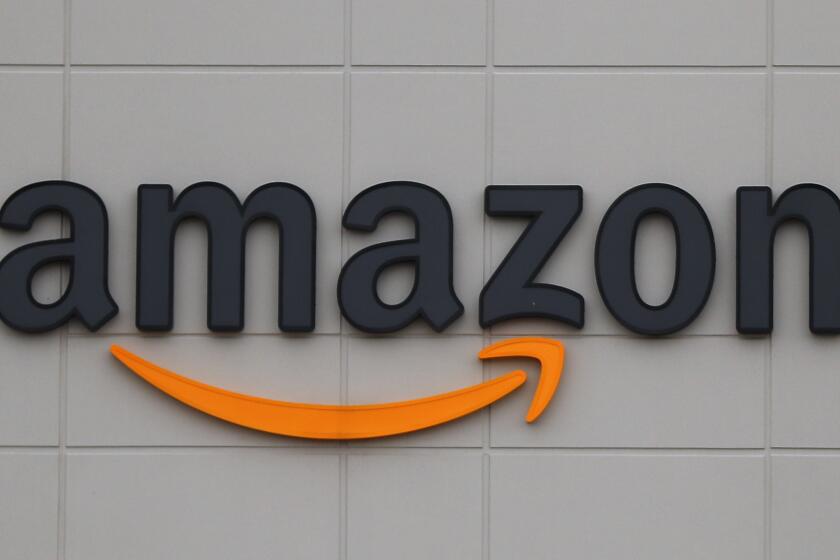EU launches new investigation of Google, this time over digital ad technology

LONDON — European Union regulators have launched a fresh antitrust investigation of Google, this time over whether the U.S. tech giant is stifling competition in digital advertising technology.
The European Commission said Tuesday that it had opened a formal investigation into whether Google violated the bloc’s competition rules by favoring its own online display advertising technology services at the expense of rival publishers, advertisers and advertising technology services.
The investigation underscores European concerns about Google’s dominance in the online advertising industry and whether it’s exploiting its data advantage to cement its position in the display ad market, which the EU estimates is worth $24 billion annually.
Online display ads are the banners and text that show up on websites such as newspaper homepages and are personalized based on an internet user’s browsing history. Search ads, in contrast, appear alongside search engine results and are based on keywords that users type in for searching.
The commission, the EU’s executive arm and the bloc’s top antitrust enforcer, signaled it’s looking in particular at YouTube and whether Google is using the video sharing site’s dominant position to favor its own ad-buying services by imposing restrictions on rivals.
Google said competition in online ads has made them more affordable and relevant, cut fees and expanded options for publishers and advertisers.
European Union regulators have opened an in-depth investigation into U.S. tech giant Google’s plan to buy fitness tracking device maker Fitbit.
“Thousands of European businesses use our advertising products to reach new customers and fund their websites every single day,” Google said in a statement. “They choose them because they’re competitive and effective. We will continue to engage constructively with the European Commission to answer their questions and demonstrate the benefits of our products to European businesses and consumers.”
The investigation signals a renewed effort by Margrethe Vestager, the EU commission’s competition chief and executive vice president for digital, to rein in Google’s market power. She has already slapped Google with a total of $9.7 billion in fines in three separate antitrust cases. There was criticism, however, that the fines were not much of a deterrent because the company could easily afford them.
“Online advertising services are at the heart of how Google and publishers monetize their online services,” Vestager said. Google collects data to be used for targeted advertising while it also sells advertising space and acts as a middleman between online advertisers and publishers, she said.
“We are concerned that Google has made it harder for rival online advertising services to compete in the so-called ad tech stack,” Vestager said.
A European Union court has overturned a ruling that said a tax deal between Amazon and the Luxembourg government amounted to illegal state support.
The EU commission said it was investigating the ways Google uses technology to broker display ad sales between online advertisers and publishers.
For one, officials are examining requirements to use Google’s in-house ad-purchasing platforms to buy display ads on YouTube while rival services are potentially restricted in the way they can serve up ads on the video-sharing site. Investigators are also scrutinizing whether Google’s various ad platforms favor one another.
The commission is also looking at the restrictions Google puts on advertisers, publishers and competing ad brokers to access data on the identity and behavior of users — data that Google’s own ad services have access to. Such data can be used to tailor online ads to individual web users.
Also under the microscope are Google’s plans to phase out third-party browser “cookies” on Chrome and ad-identifier tags on Android devices for users opting out of personalized advertising, as part of the company’s plan to beef up privacy measures. The commission is looking into how these plans will affect digital ad markets.
News Alerts
Get breaking news, investigations, analysis and more signature journalism from the Los Angeles Times in your inbox.
You may occasionally receive promotional content from the Los Angeles Times.
EU regulators have the power to impose penalties worth up to 10% of a company’s annual revenue. But it’s a small price to pay for wealthy tech companies like Google, which posted a $17.9-billion profit in its latest quarter, and the commission is turning to other methods beyond headline-grabbing fines.
Vestager has started using “interim measures” as a speedy way to halt anti-competitive behavior while investigations are carried out. She also has a lead role in updating the EU’s digital rulebook with measures aimed at reining in the tech giants and preventing them from cornering digital markets in the first place.
More to Read
Sign up for Essential California
The most important California stories and recommendations in your inbox every morning.
You may occasionally receive promotional content from the Los Angeles Times.












